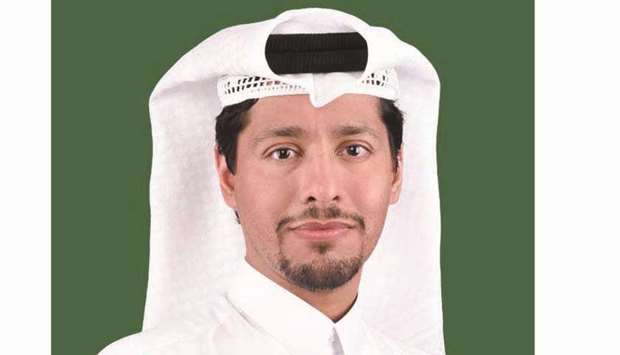*International investments will remain integral to the vitality of the Qatari economy
Current challenges to worldwide investments began a while before Covid-19. This year, investment flows of all forms fell to a new low between the USA and China. The ongoing rivalry between the two giants has also resulted in investor polarisation. And as the USA-China chasm widens by increasing tariffs, regulations and investment restrictions, international investors tiptoe around asset geo-allocation, if not choose sides.
Then came Covid-19 to add insult to injury, accentuating the investment crossroad that leads to either China or the USA. Flows of foreign direct investments fell $500bn to date, and are projected to fall more than 30%, in best-case scenarios, by the end of 2020 due to the pandemic-induced recession. Presently, analyses, projections and forecasts can merely paint a black picture of capital markets which is not of use to international investors.
Well evaluated international investments, nonetheless, will continue to be integral to the vigour of Qatar’s economy. They extent beyond the national investment arm’s (the Qatar Investment Authority) assets to include investments by other energy, media, tourism, education, and real estate sector players, in addition to private investors.
With that in mind and given that global commercial ties are intricately interwoven, much like many world affairs, the concepts of fiscal resilience and sustainability will play crucial roles. Specifically, after economic kneejerk “stimulus” reactions, which we continue to witness in countries around the world, will have passed.
Resilience on a national level may mean, for example, lending ardent support to small and medium enterprises in the local supply chain. Needless to mention, we were fortunate in Qatar to have an eye-opening event back in 2017 that compelled us to build up and reinforce our local economic resilience. But, in a cross-border context, resilience is the methodical diversification of investment portfolios.
Qatar has strategically diversified portfolios across asset classes, and geographies like the UK and Southeast Asia, with the USA and China on opposite ends. By having a strong economy that continues to steadfastly delivers on envisioned growth, we now reap what we sow. Very soon, true resilience will also come into the rescue to counter the backlash of de-globalisation triggered by Covid-19 responses. After that, to ramp up from nearly a complete halt, world economies will crutch on key investments. These investments are mostly in the areas of social and environmental sustainability.
Financial institutions like State Street and Blackrock now have conviction that “Environmental, Social and Governance (ESG)” sustainability criteria are of utmost importance to portfolio resilience. Sustainability has recently proven to be more than an asset label. Over 90% of ESG indices outperformed other market indices in the bearish 2020. It is no more believed that ESG sacrifice profit making. It is rather an empirical fact, currently, that ESG lower risks while increasing and stabilising returns.
Qatar’s philanthropic impact investing in UN’s Sustainable Development Goals as well as capital deployment for a wide range of not-for-profit ventures have surpassed many, if not most, other countries’ contributions. However, the Qatari appetite for for-profit ESG investments is yet to develop. Much of economic and political decision making today revolves around climate change and the pandemic, and so, we will have to catch up to the shift in perspective on ESG as the world grapples with these existential problems.
Covid-19 accelerated “principled” investment, and investors increasingly scrutinise sustainability and resilience of businesses, whether or not officially declared. In a survey by Earnest & Young, 98% of surveyed investors evaluate non-financial disclosures and 72% of them conduct systematic evaluations. These evaluation systems are by no means standardised or universal.
Thus, measurable principles, particularly for trans-national investments, will have to be put in place to power through the next global crisis. But then how could principles of sustainable and resilient investment be kept during crises? Rigorous policy frameworks, such as International Investment Agreements (IIAs) and Treaties with Investment Provisions (TIBs), will continue to assure legal stability against unpredictable changes, especially political whims.
Now more than ever, institutional investors value qualitative factors in assessing investments. Principles of ESG/sustainable and resilient investment are paramount in this regard. As much as the next investor, we would want to invest in a revolutionary global warming solution and the next pandemic vaccine, or better yet, invest in preventing these crises.
**Dr Soud Khalifa al-Thani is the Adjunct Professor of Sustainable Development at Hamad Bin Khalifa University.

